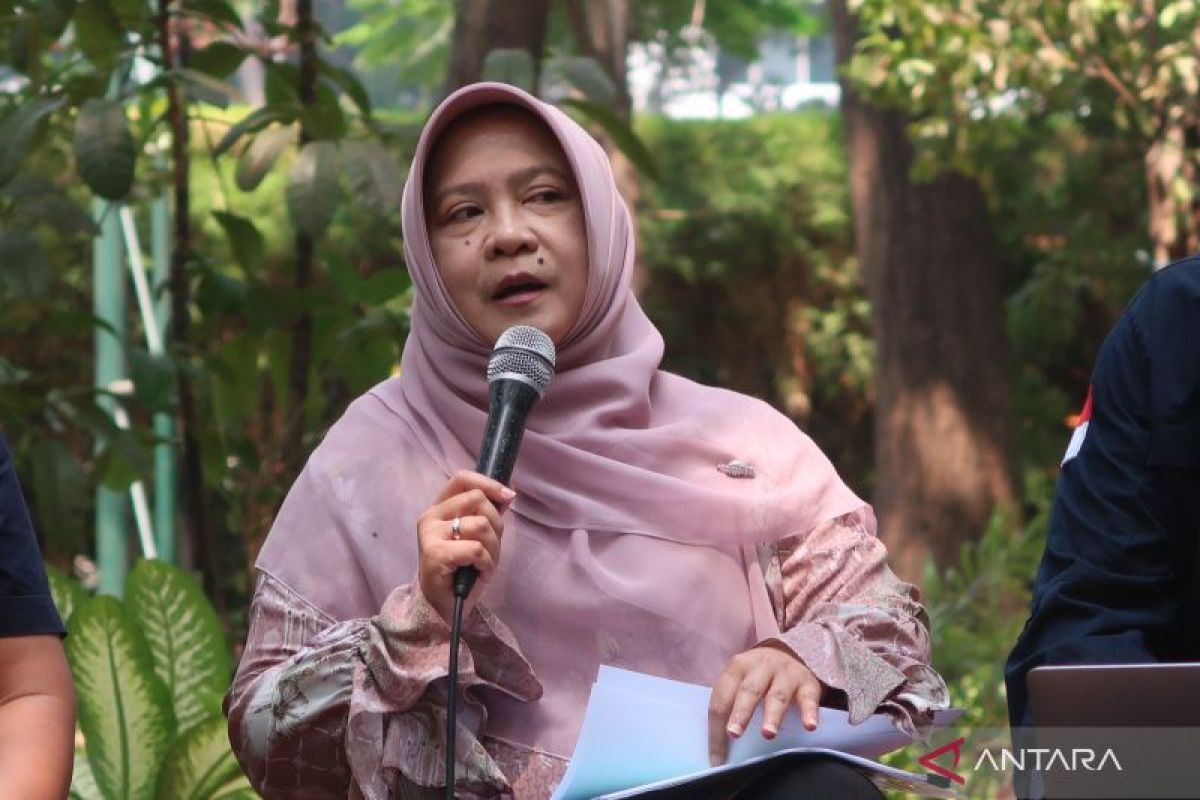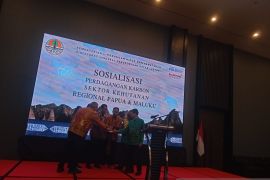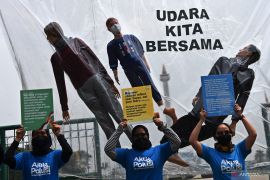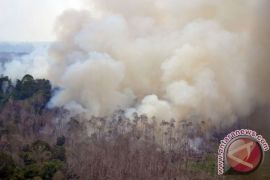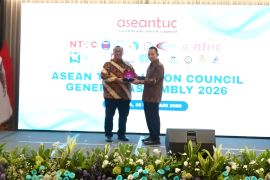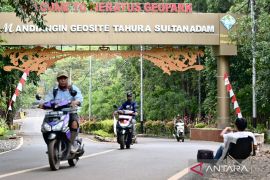We are monitoring (the haze) by using data from ASMC (ASEAN Specialized Meteorological Centre) in Singapore and the imagery of the Himawari satellite…Jakarta (ANTARA) - The Indonesian government has been consistently using open data to respond to concerns regarding transboundary haze pollution from forest and land fires within the country, the Ministry of Environment and Forestry (KLHK) said on Saturday.
"We are monitoring (the haze) by using data from ASMC (ASEAN Specialized Meteorological Centre) in Singapore and the imagery of the Himawari satellite operated by BMKG (Meteorology, Climatology, and Geophysics Agency)," Laksmi Dhewanthi, the ministry's Climate Change Control Director General, said in Jakarta.
She made the statement at a press conference on the handling of forest and land fires at the KLHK Ministry's Arboretum Park.
By utilizing the data from the two institutions, the KLHK Ministry has been able to confirm the facts surrounding the issue of Indonesia-originated haze pollution spreading to neighboring countries, Dhewanthi said.
"We respond to the issues based on the data because everything we do is always based on science and data. By doing so, we can easily trace it (the haze) and clarify about the issues," she elaborated.
According to data from ASMC and BMKG, as of Saturday morning, no haze has been detected crossing the borders of neighboring countries despite several Indonesian provinces currently recording forest and land fires, she informed.
Furthermore, the data used by the KLHK Ministry are open and can be accessed easily, thereby enabling all parties to confirm whether the haze is crossing international borders or not, Dhewanti highlighted.
Speaking of the Malaysian government's offer to help Indonesia handle the fires, she said that both countries are members of the Association of Southeast Asian Nations (ASEAN), so they can refer to the ASEAN Agreement on Transboundary Haze Pollution.
Based on the agreement, ASEAN countries can cooperate to deal with transboundary haze, including by conducting monitoring, assessment, and prevention efforts, as well as executing emergency response measures at the national and regional levels, she expounded.
She further added that the agreement also outlines procedures for ASEAN countries to collaborate in terms of personnel, materials, and equipment required for the cause.
"We are following the steps outlined in the agreement. Currently, Indonesia is taking various emergency response measures," she informed.
All ASEAN countries, she said, are supposed to refer to the same sources of data and implement cooperation based on the mechanism that has been agreed upon.
However, the agreement states the ASEAN Co-ordinating Centre for Transboundary Haze Pollution Control "shall work on the basis that the national authority will act first to put out the fires. When the national authority declares an emergency situation, it may make a request to the ASEAN Centre to provide assistance."
Seven provinces in Indonesia have currently declared a status of emergency response for forest and land fires: Riau, Jambi, South Sumatra, West Kalimantan, Central Kalimantan, South Kalimantan, and East Nusa Tenggara.
In order to prevent forest and land fires from becoming recurring annual disasters, the Indonesian government has devised three solutions that involve analyzing weather and climate, strengthening the capacity of teams on the field, and improving landscape management.
Meanwhile, Director General of Environmental and Forestry Law Enforcement at the KLHK Ministry, Rasio Ridho Sani, revealed that the ministry has sealed off 35 scorched lands — 11 in West Kalimantan, 10 in Central Kalimantan, and 14 in South Sumatra.
He noted that a majority of the lands were used for oil palm plantations.
"We will not hesitate to revoke the permits of lands that experience recurring fires," he emphasized.
Related news: ASEAN inaugurates ACC THPC to combat haze pollution
Related news: BNPB seeks to anticipate forest fires to prevent transboundary haze
Related news: Pekanbaru mulls closing schools if haze worsens
Translator: Sugiharto P, Tegar Nurfitra
Editor: Sri Haryati
Copyright © ANTARA 2023
